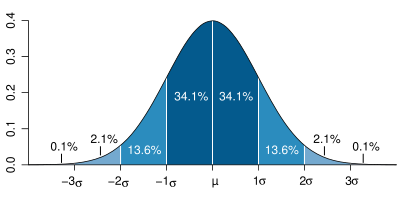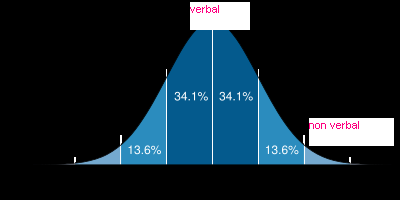I recently made a major change in my life with regards to school, I had attempted 3 years of Engineering, but was unable to finish the program. So, I had an educational evaluation done to help me guide my decision about where to go next in life. This test was supposed to reveal all kind of things about my personality and learning habits.
The test was 6 hours long and involved numerous tests with all kinds of abbreviations. All seemingly very scientific. In fact, the results of the IQ test and the conclusions drawn from it I found fairly accurate, reflecting well on my own opinions of my abilities and habits. Although not totally correct, it was eerily accurate. However, apparently, I have lived my entire life with two major learning disorders:
1] Disorder of Written Expression
2] Mixed Receptive-Expressive Language Disorder
I have no delusions about my writing ability, and I am well aware of my reliance on things like spell check, and I'm sure that my grammar is atrocious. It was one of the major driving factors in choosing a major with as little writing as possible. Nevertheless, when I read up on these disorders the descriptions did not seem to fit anything I have ever experienced in my life.
For example, apparently I am unable to organize my words into meaningful thoughts, I can't form letters correctly, and I can't write words from diction. In my entire High school and post secondary career I never received extremely poor grades in writing tasks. In fact, in my last semester I received extremely high marks on my History essays. I'm not sure how this applies to me. Writing doesn't come easy to me, but I can organize my words, and I can certainly spew out what other people have said -- I mean, I passed my first year psychology class.
Worse is the mixed receptive-expressive language disorder. Apparently this disorder can either be biological, or caused by brain damage. This relates to the ability to understand what people are saying, and the ability to communicate my thoughts to other people. I have never in my entire life, all 22 years, experienced anything that would lead me to believe that I suffer from something so severe. I had to give speeches in school, hell I even passed my communications for Engineers class with flying colors.
The diagnosis apparently comes from the statistical deviation that exists from my IQ scores to my ability scores on various tests. My IQ scores were well above average, and my ability scores were only somewhat above average and one, a writing piece, apparently was dropped numerous points because I had erased something on my paper, and frankly, I didn't really put all that much effort into my little paragraph. Even though my abilities may not be below average, they fall below what my IQ dictates they should be.
Needless to say, the diagnosis was even hard for the diagnostician to say to me with much conviction. Regardless, I am required by law to now have certain accommodations made necessary for me by post-secondary institutions, like extra time and a bib.
During my days in Engineering I had a hard time swallowing any of my Social Science classes as really Science. And by admission they consider themselves a soft science, aka not hard, aka not science. I can't agree more. Scientific results are repeatable, and inputs and outputs are well-defined. If a std between tests is a diagnosis for a disorder then that should be repeatable and accurate across all test subjects. The symptoms should fit the diagnosis.
Are there any folks out there who have had similar experiences with psychological testing? Hell, maybe I am wrong and I really do have these problems, but I don't buy it.






